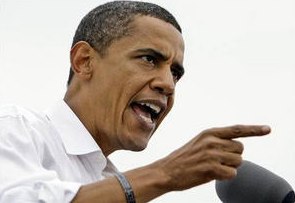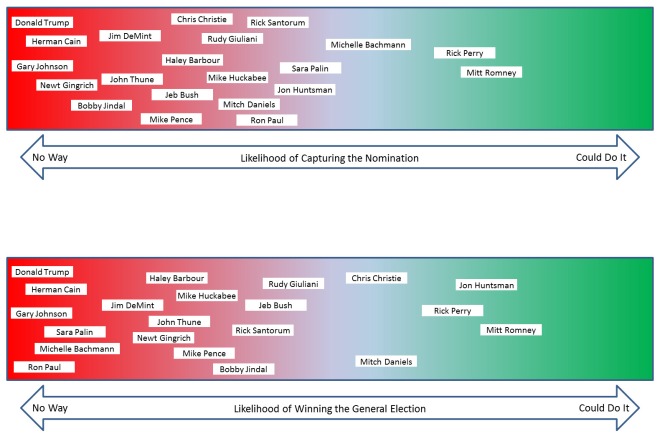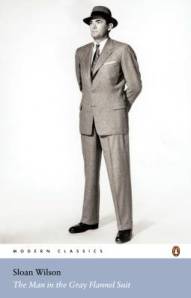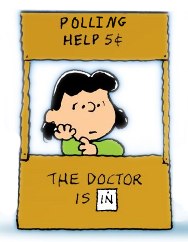 So a very nice woman from the DFL calls the other night, asking for my help in the battle against those nefarious Republicans. Money help, you understand. Not any of my cheap deep thoughts about how to fight the bastards. And what do I do? … I go off on her. Maybe it’s the dog days of summer, maybe it’s seeing Eric Cantor’s face once too often in a given day, but there I am ranting crazy old three-day stubble geezer stuff at this (no doubt) unpaid volunteer, drinking bad coffee and working her way down a long list of “likely DFL voters”. (Think of that, the horror!)
So a very nice woman from the DFL calls the other night, asking for my help in the battle against those nefarious Republicans. Money help, you understand. Not any of my cheap deep thoughts about how to fight the bastards. And what do I do? … I go off on her. Maybe it’s the dog days of summer, maybe it’s seeing Eric Cantor’s face once too often in a given day, but there I am ranting crazy old three-day stubble geezer stuff at this (no doubt) unpaid volunteer, drinking bad coffee and working her way down a long list of “likely DFL voters”. (Think of that, the horror!)
I remember at least three uses of the word “hapless” in my rant, another demand to “at least get in the game” and various other indignant requests for her to tell me where the DFL party was when we needed a big Wisconsin-like rally out in front of the TV cameras to throw some pain in the faces of Kurt Zellers and Amy Koch as the shutdown loomed? It wasn’t my most dignified moment. If I were a classic Minnesota liberal I’d have said something like, “Well gosh, I just know that with my $50 you’ll talk some sense to those Tea Baggy people and we’ll get things all straightened out around here nice and tidy. Because, golly, I’m sure we’re all reasonable and want to do the best thing, don’t we?”
But I’m not (reasonable, about this stuff anymore). I didn’t give the DFL $50. In fact I think my last line was something like, “Call me back when you prove you can win something.”
So, guilty. Bastard-person. Crotchety, cranky, get-off-my-lawn, fast-slipping, borderline nutjob. Guilty.
But … being an old altar boy, after a day or two of marinating in guilt, I decided to become part of the solution and seek a kind of confessional renewal. So I created a TV ad that Democrats here and everywhere can have, free of charge, no royalties. All they have to do is play it twice a night in primetime and once on the late news in every Top 50 market in the country for, mmm, a month. Make it two months. After that I’ll cook up a new one.
Here’s the script:
Over a black screen … the Moog synthesizer solo from The Who’s “Won’t Get Fooled Again”.
Fade In: That still of good old dotty Ronnie Reagan in his Burbank backlot cowboy hat.
(Chyron … “1980”)
Voice over. (Either Sam Elliott or Jeff Bridges. Or a Rush Limbaugh impersonator).
“Ronald Reagan runs for president, promising a balanced budget.”
(Chyron … “1981 – 1989”) Under a fast montage of fired air traffic controllers, ludicrous Star Wars laser beams, the Nicaraguan contras, Ollie North, a happy looking Ayatollah Khomeini and Donald Rumsfeld shaking hands with Saddam Hussein … )
(VO): “With support from congressional Republicans, Reagan runs enormous deficits, adds $2 trillion to the debt.”
(Chyron: “1993”) Another montage of Bill Clinton’s first inauguration, a pouting Newt Gingrich and a screen shot of the House vote totals for the Omnibus Budget Reconciliation Act of 1993 …
(VO:) “Bill Clinton passes an economic plan that lowers the deficit. It gets zero votes from congressional Republicans. Not … one … vote.”
(Chyron: “1998”). Montage of stock market booming, McMansions, giant SUVs, Pamela Anderson …
(VO:) “The U.S. deficit disappears … for the first time in three decades. The national debt clock is unplugged.”
(Chyron: “2000”) Montage of Gore-Bush debates, “Brooks Brother rioters” storming election canvassers in Dade County, Dick Cheney …
(VO:) “George W. Bush runs for president, promising to maintain a balanced budget.”
(Chyron: “2001”) Montage of Antonin Scalia, Gore conceding, Bush inaugural motorcade being pelted with eggs …
(VO:) “The non-partisan Congressional Budget Office shows the United States is on track to pay off the entirety of its national debt — all of it — within a decade.”
(Chyron: “2001 – 2009”) Montage of Paul Wolfowitz, 9/11, “shock and awe”, Iraqi chaos, smiling Osama bin Laden, Tom DeLay, Karl Rove, Jack Abramoff and headlines of passage — by reconciliation — of a massive tax cut … ending with a sound clip of Dick Cheney saying, “Deficits don’t matter.”
(VO:) “Congressional Republicans agree. They approve huge new, ten-year tax cuts, two unbudgeted wars, and a Medicare expansion without even trying to pay for them. The effect is enormous deficits. Bush adds nearly $5 trillion to the debt.”
(Chyron: “2009”) Montage of Obama campaign, stock market cratering, Lehman Brothers bankrupt, McCain saying “the fundamentals of our economy are strong”, Sarah Palin winking, massive lay-offs and the inauguration …
(VO:) “Barack Obama inherits $1.3 trillion deficit from Bush and job losses of over 700,000 a month. Republicans immediately condemn Obama’s fiscal irresponsibility.”
(Chyron: “2009”) Montage of an unhappy looking Eric Cantor, John Boehner and Mitch McConnell, health care town hall confrontations, FoxNews talking heads railing about “death panels” …
(VO:) “Obama pushes several domestic policy initiatives — primarily including health care reform — designed to get a grip on the most negative drags on the economy, which will also lower the deficit. The GOP opposes every facet of reform, while continuing to demand deficit reduction.”
(Chyron: “September 2010”) Montage of headlines of Republicans abusing Senate filibuster rule at an unprecedented rate, Tea Party “revolutionaries” with misspelled signs, GM and Chrysler coming back from government protection …
(VO:) “In Obama’s first fiscal year, the deficit he inherited from George W. Bush actually shrinks by $122 billion. Republicans nevertheless condemn Obama’s fiscal irresponsibility and fight to maintain tax cuts for the very wealthy.
(Chyron: “October 2010”) Montage of signs of fledgling economic recovery … stimulus funds at work on roads, bridges, schools, laying fiber optic …
(VO:) “Standard & Poor’s reaffirms the nation’s AAA rating, saying the United States looks to be in solid fiscal shape for the foreseeable future.”
(Chron: “November 2010”) Montage of election disaster for Democrats. Smiling Mitch McConnell, Rush Limbaugh, Sean Hannity, Eric Cantor …
(VO:) “Republicans win a U.S. House majority, citing the need for fiscal responsibility.”
(Chyron: “December 2010”) Montage of Republicans wielding power … more McConnell, Boehner, Cantor, Michele Bachmann, Joe “You Lie!” Wilson …
(VO:) “Congressional Republicans demand extension of the Bush tax cuts, which requires tremendous new deficits. Simultaneously they continue to accuse Obama of fiscal irresponsibility.”
(Chyron: “March 2011”) Montage of debt ceiling images … more Cantor, Bachmann, McConnell …
(VO:) “Congressional Republicans declare their intention to hold the faith and credit of the United States hostage — a move without precedent in American history.”
(Chyron: “July 2011”) Sound clip of Obama offering a $4 trillion debt-reduction package … .
(VO:) “Republicans refuse the deal, because it would close loop holes for corporate jet owners and oil companies. The self-inflicted debt ceiling crisis rattles international markets, adding to financial instability. But they blame Obama.”
(Chyron: “August 2011”) Montage of markets in turmoil …
(VO:) “Standard & Poor’s downgrades the U.S. credit rating citing Republican GOP refusal to consider new revenues. Republicans rejoice at “getting 98% of what I wanted” and blame Obama for fiscal irresponsibility.”
Sound up of Roger Daltrey’s scream … and fade to black.
* Thanks to Steve Benen at The Washington Monthly for the guts of this rant.
 Politicians hate losing. For this reason, President Obama is contiunally counting congressional votes and pulling back from positions where it looks like he will lose if he pushes the issue to a final vote.
Politicians hate losing. For this reason, President Obama is contiunally counting congressional votes and pulling back from positions where it looks like he will lose if he pushes the issue to a final vote. 
















